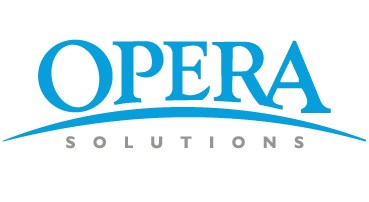 While some users are just now getting their footing in Big Data, two — healthcare management and fraud prevention experts —are already successfully using predictive analytics to deliver unprecedented results. And so it makes sense that the Centers for Medicare and Medicaid are turning to Big Data predictive analytics solutions to prevent fraud and enhance operational controls in the new health insurance exchanges that form the centerpiece of the program.
While some users are just now getting their footing in Big Data, two — healthcare management and fraud prevention experts —are already successfully using predictive analytics to deliver unprecedented results. And so it makes sense that the Centers for Medicare and Medicaid are turning to Big Data predictive analytics solutions to prevent fraud and enhance operational controls in the new health insurance exchanges that form the centerpiece of the program.
Health insurance fraud is a huge issue
Health insurance fraud is a huge problem, estimated to be between $48 and $98 billion in Medicare/Medicaid alone. And it’s only going to grow as more people receive health insurance benefits through the exchanges, which are slated to enroll 7 million people in 2014 and 24 million by 2016 (as well as through other expansions under the ACA). Only sophisticated machine learning algorithms, delivered at scale, can efficiently and effectively identify fraud in the billions of transactions that will be generated by these exchanges.
It’s not just the sheer size that’s challenging — there’s also variability in the data flow. Under the current system, the federal exchange is just one piece of the puzzle. States also have to provide access to exchanges, either by building their own, defaulting to a federally facilitated exchange, or partnering with the federal government in varying capacities. Each of these constructs will need to address fraud and abuse challenges in its own way.
Exchanges vary by state
For example, the critical tasks of state exchanges will be to identify individuals eligible for subsidized insurance plans by matching their information with a federal database, offer a variety of health plans to qualified individuals based on level of coverage, facilitate competition among plan providers, and provide support and navigation services for exchange users. Underneath all of these surface functions, fraud and abuse systems must constantly work to detect, identify, and control instances of fraud.
State exchanges will also need to seamlessly determine eligibility for public programs, such as Medicaid, and determine whether consumers are eligible for any cost subsidies or tax credits. This will be accomplished by cross-referencing consumer information with several state and federal databases. Exchanges, regardless of their governing body, will be used to facilitate transactions among consumers, insurance companies, and providers — the core concept being that objective comparisons of key components of several health plans offered in the marketplace will give more power to the consumer.
The good news is that these changes in the healthcare system provide a new opportunity to implement advanced analytics solutions to reduce the fraud epidemic that plagues the current system. Analytics systems that are designed to sit on top of state and federal exchange databases and that utilize advanced pattern recognition, anomaly detection, and other tools will be paramount to ameliorating fraud and abuse in the exchange systems.
How Big Data can help
These systems hold huge promise for eradicating fraud and improving operations. Here’s how it will work in the area of claims:
Machines, armed with sophisticated algorithms, will automatically generate a risk score for each submitted claim based on such factors as providers, services rendered, beneficiary, or other tags. Red-flagged claims will be routed to CMS case managers, who will further examine them and take appropriate action. As more claims are analyzed, scored, and approved or declined, the analytics models will identify ever-more-predictive patterns and use this information to become more efficient at identifying fraudulent claims. The technology for prescreening claims to identify aberrant and suspicious patterns will become a core capability of every exchange, regardless of federal or state control.
In 2012, Opera Solutions was awarded an exclusive contract from CMS to provide the fraud and abuse-detection systems in all federally facilitated exchanges. We will provide our unique healthcare fraud anomaly-detection tool to CMS, as well as extensive experience in both the healthcare and fraud-detection fields.
Learn more about our agreement with the Centers for Medicare and Medicaid Services in our press release.


